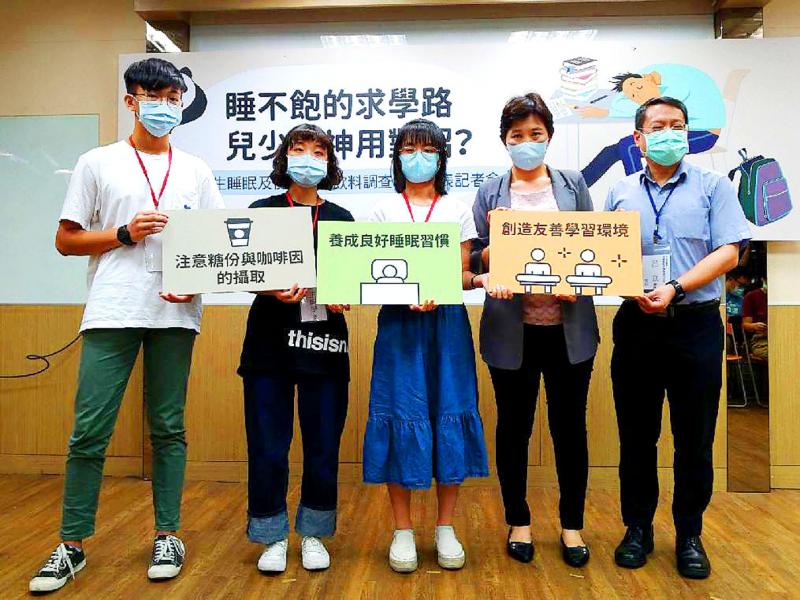
-
By Sherry Hsiao / Staff reporter
Nearly 80 percent of students in Taiwan get less than eight hours of sleep per night, a survey released yesterday by the Child Welfare League Foundation showed.
The survey, which looked at sleeping habits and the use of stimulant drinks among junior, senior and vocational high-school students, found that respondents got an average of 6.9 hours of sleep each night.
Overall, students go to bed at 11:15pm and wake up at 6:12am, the foundation said.

Photo: CNA
Junior-high school students reported an average of 7.3 hours of sleep per night, while students in senior or vocational high schools reported 6.5 hours, the survey found.
Among the latter, 88.9 percent said they slept less than eight hours a night, and 23.7 percent said they slept less than six hours, the survey found.
Asked why they stayed up late the last time, 33.6 percent of respondents said it was to read, do their homework or prepare for a test, 22.6 percent said “screen time” and 21 percent said they either had trouble falling asleep or were in a bad mood.
One-quarter of respondents who reported averaging seven or less hours of sleep said they “often” or “always” doze off in class, while the same was true for 12.7 percent of those who reported more than seven hours of sleep, the foundation said.
Nearly 52 percent of respondents who slept seven hours or less said they felt exhausted after a day of classes, including after-school instruction, while 32.6 percent of those who slept more than seven hours said that was the case, the survey found.
In addition, 68.6 percent of respondents reported drinking an energy drink or coffee in the past month, while 35.1 percent of respondents who drank more than one cup of coffee per week had trouble with sleep, the foundation said.
Children aged 13 to 18 should be getting eight to 10 hours of sleep, foundation executive secretary Huang Yun-shan (黃韻璇) said.
Lack of sleep can lead to tiredness during the day, reduce a person’s concentration and affect their mood, said Frank Lu (呂立), director of the pediatric pulmonary and critical care medicine department at National Taiwan University Children’s Hospital.
People who have trouble sleeping should try to keep a regular sleeping schedule, exercise during the day and avoid stimulating activities before bedtime, such as looking at their phones, he said.
The survey was conducted via paper questionnaires from Sept. 16 to Oct. 31 last year, and 1,536 valid samples were collected, the foundation said, adding that the survey had a margin of error of 2.5 percentage points.
Comments will be moderated. Keep comments relevant to the article. Remarks containing abusive and obscene language, personal attacks of any kind or promotion will be removed and the user banned. Final decision will be at the discretion of the Taipei Times.